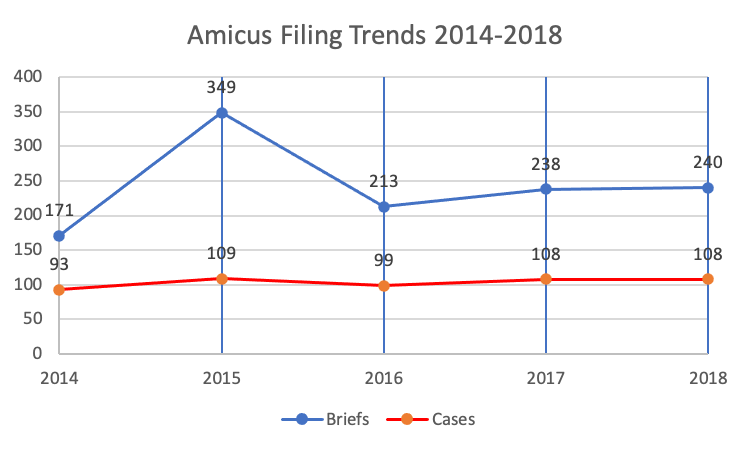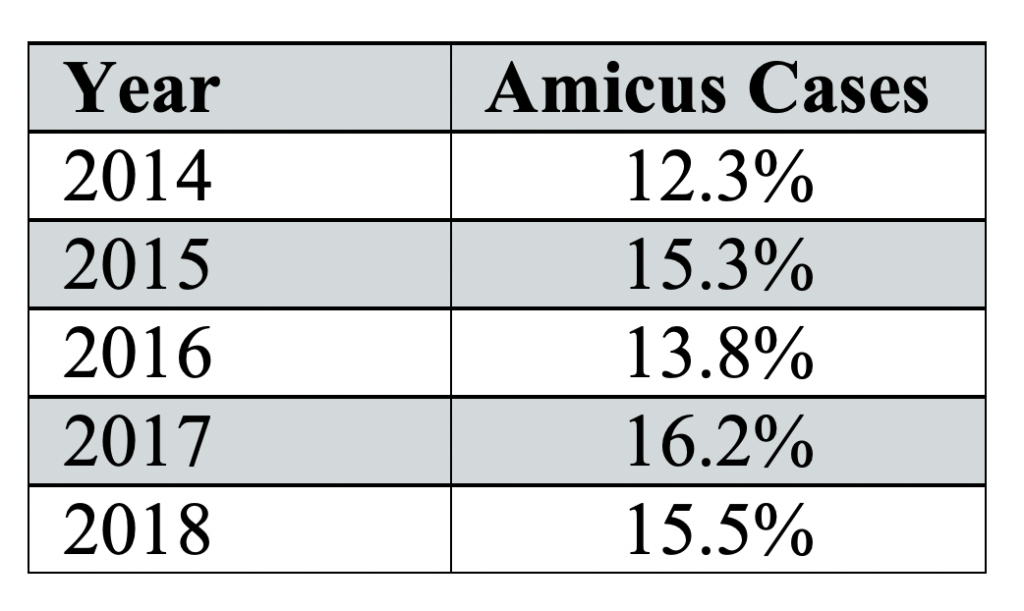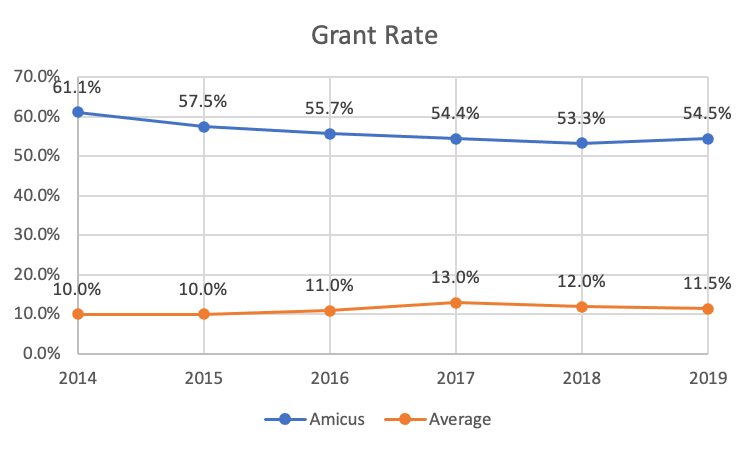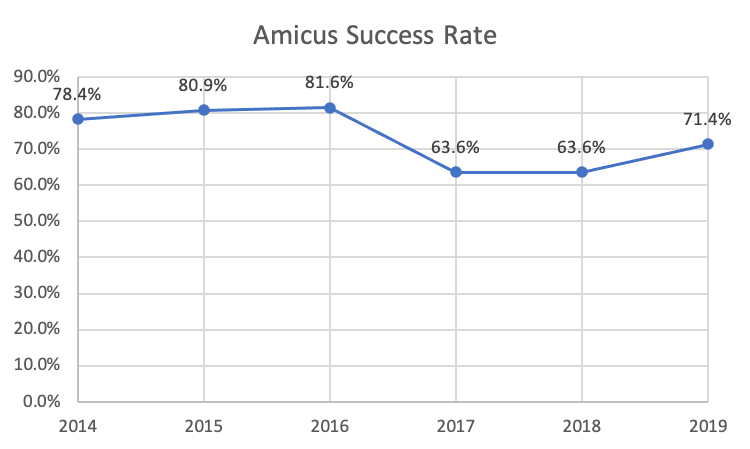Amicus involvement at the Texas Supreme Court, although not as active as in the United States Supreme Court, has grown steadily in numbers and importance. While this study of amicus filings does not demonstrate causation, it does suggest the value of strategic use of amicus participation in Texas Supreme Court cases.
A review of case results mirrors this trend of amicus filers growing steadily over the five years studied, with grant rates almost five times higher in cases with amicus involvement than the Court average, and positive outcomes in a supermajority of cases with opinions.
This article details the trends in amicus filings from 2014 to 2018 and examines the sources of amicus filings at the Court. The article then turns to the impact of amicus filings on two key statistics at the Court: granted petitions and favorable opinions.
Overall Numbers of Amicus Cases and Filings
Amicus practice at the Texas Supreme Court has generally been steady over the last half decade. As illustrated in the chart below, three of the five years between 2014 and 2018 have had nearly the same number of cases with amicus involvement.

As a result, the percentage of total cases with at least one amicus filing has held steady at around 15%.

While the total number of cases with amicus involvement has shown little variance, the total number of amicus briefs filed has gradually increased over the same five-year period. 2015 is the obvious exception to this trend. In that year, five cases (dealing with attorney discipline, divorce proceedings for same-sex couples, and school finance) accounted for over a quarter of all amicus filings.
Amicus Filers
The most frequent amicus filers in the Texas Supreme Court overwhelmingly tend to be industry associations (for example, the Texas Association of Business or the Texas Trial Lawyers Association) and interest groups (such as Texas for Lawsuit Reform and the Texas Civil Justice League). These two groups account for over half the amicus filings during 2014-2018. Individual industry participants and governmental bodies are also active amicus filers. Attorneys and private individuals each participate about half as often as industry participants. Academics are the least involved amicus participants at the Texas Supreme Court, submitting less than two dozen filings during the last five years.
Grant Rate
As demonstrated in the chart below, cases with amicus involvement have a significantly higher grant rate than the overall average.

During the five years studied, more than half of all cases with amicus participation were granted by the Court. The first six months of 2019 were consistent with past years. While there has been a slight decline since the 2014 grant rate of 61.1%, the average grant rate for cases with amicus involvement is still nearly five times the Court average.
Success Rate
Amicus participants have also seen success where it matters most, in the opinions handed down by the Texas Supreme Court. For the first three years of this study, 80% of cases with amicus involvement resulted in a favorable opinion to amicus participants. More recently, that level has dipped to a two-thirds success rate, although opinions released in the most recent term with 2019 amicus filings have seen an increase in amicus success. Further, several of the amicus filings in cases decided in 2018 and 2019 were filed at the opinion rehearing stage, where the chances of success are far lower. When these cases are accounted for, the success rate in 2018 and 2019 more closely approximates the higher success rates realized in 2014-2016.

Conclusion
The participation of amicus filers at the Texas Supreme Court has grown steadily over the last five years. Results have mirrored this trend, with grant rates almost five times higher in cases with amicus involvement than the Court average, and positive outcomes in the vast majority of cases with opinions. While this study does not demonstrate causation, it does suggest the value of strategic use of amicus participation in Texas Supreme Court cases.
Ryan Paulsen and Anne Johnson are both lawyers in the Dallas offices of Haynes and Boone. Paulsen is appellate counsel and a former clerk at the Texas Supreme Court. Johnson is a trial and appellate partner who served six years as chair of the firm’s litigation practice group.
